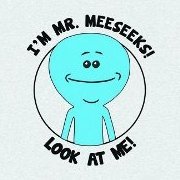Intellectual Property
-
Recently Browsing 0 members
- No registered users viewing this page.
-
Topics
-
-
Popular Contributors
-
-
Latest posts...
-
12
Report Thai Guard Hospitalised Following Cobra Encounter
More likely will finish up on a menu, sad to say. -
13
Report Hotel Lease Scam: Indian Investor Loses 960,000 Baht
What a bad country to invest anything in.Cant trust anyone even the government. -
-
8,198
-
48
Thai - Cambodia Conflict Hun Sen Threatens Arrest of Thai Leaders Amid Border Dispute
Cluster munitions are some of the nastiest weapons out there. They are highly indiscriminate. This means civilians are at risk if they are within the strike zone. It is impossible to use them "strictly against military targets". -
0
ACIP launches sweeping Covid-19 vaccine review under Retsef Levi
Posted on the 'regular' Covid-19 Coronavirus sub-forum >
-
-
Popular in The Pub










Recommended Posts
Create an account or sign in to comment
You need to be a member in order to leave a comment
Create an account
Sign up for a new account in our community. It's easy!
Register a new accountSign in
Already have an account? Sign in here.
Sign In Now